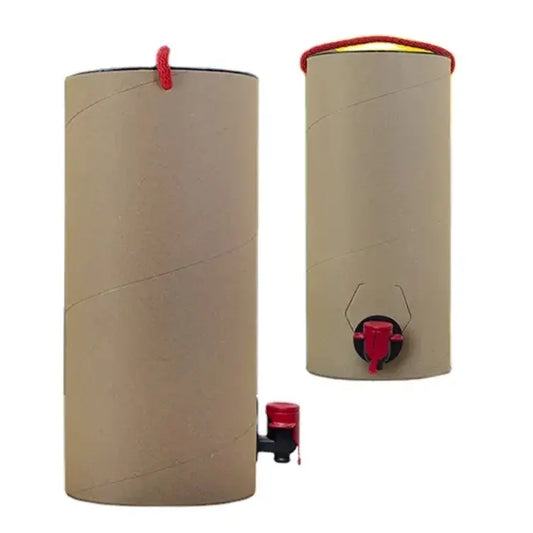
How Transport Stress Impacts Oxygen Permeability in Bag-in-Box Wine Packaging: Key Insights for Winemakers
zhangrenfangShare
Discover how transport stress affects oxygen permeability in Bag-in-Box wine packaging and why material choice matters for preserving wine quality. Learn about aluminum, EVOH, and Met. PET barriers in this in-depth analysis.

Introduction: Bag-in-Box Packaging in the Wine Industry
Bag-in-Box (BiB) packaging has revolutionized wine storage and distribution, offering cost-efficiency, sustainability, and extended shelf life. However, transport stress—such as vibration and long-distance hauling—can compromise packaging integrity, accelerating oxygen ingress and oxidation. This study evaluates the effects of transport stress on oxygen permeability across three key barrier materials: aluminum-laminated films, EVOH, and Metallized PET (Met. PET).

Key Findings: Oxygen Permeability Under Transport Stress 5
-
Material Performance Comparison
-
Aluminum-Laminated Films: Demonstrated the lowest oxygen permeability (≤0.1 cc/m²/day), making them ideal for long-term storage and premium wines.
-
EVOH: Showed moderate permeability (0.5–1.2 cc/m²/day), balancing cost and performance for mid-shelf-life wines.
-
Met. PET: Highest permeability (1.5–3 cc/m²/day), suitable for short-term use but risky for oxidation-sensitive wines.
-
-
Transport Stress Impact
-
Simulated vibration and 1,000 km road transport reduced the theoretical shelf life of Met. PET bags by 70% (from 130–450 days to 30–130 days).
-
Despite this, no visible leaks were observed in any tested bags, confirming BiB’s structural reliability15.

-
Wine Quality Preservation: Beyond Oxygen Barriers
-
Chemical Stability
-
Free and total SO₂ levels remained stable across all materials, with <10% variation compared to glass bottles.
-
Oxygen levels in transported BiB wines stayed within acceptable thresholds (≤2 mg/L), even after 9 months5.
-
-
Sensory Evaluation
-
Blind taste tests at 5 and 9 months revealed no significant differences between BiB and glass-bottled wines.
-
Red wines with high phenolic content (e.g., French table wine) showed natural oxidation resistance, masking material limitations5.

-
Practical Implications for Winemakers
-
Material Selection Guide 18
Material Best For Shelf Life (Months) Aluminum-Laminated Premium wines, long-term storage 12–18 EVOH Mid-range wines, 6–12 months 6–12 Met. PET Budget wines, immediate consumption 1–4 -
Optimizing Transport Logistics
-
Use reinforced corrugated boxes (UN-certified for dangerous goods) to minimize vibration damage4.
-
Partner with suppliers offering integrated filling lines (e.g., DS Smith’s compact systems) to ensure airtight sealing8.

-
Why Choose FDpack for Bag-in-Box Wine Solutions? 1
-
In-House Production:
-
45+ BiB fitments and 200+ spouts for custom dispensing systems.
-
GMP-certified facilities with ISO 22000 compliance.
-
-
Sustainable Innovation:
-
Lightweight, recyclable designs reduce carbon footprint by 65% vs. glass bottles.
-
-
Global Expertise:
-
Serving wineries in 30+ countries with door-to-door logistics and duty-paid options.

-
Conclusion
For red wines with high phenolic content, Bag-in-Box packaging maintains quality even under transport stress, regardless of barrier material. However, aluminum-laminated films remain the gold standard for premium vintages. By aligning material choice with shelf-life goals and leveraging advanced BiB systems, winemakers can optimize costs without compromising quality.
Call to Action:
Ready to upgrade your wine packaging? Contact FDpack for free samples of aluminum-laminated BiB solutions and explore our FDA-compliant, eco-friendly designs!






1 comment
Hey guys, I am an small wine producer in Colombia, South America, I am interested in this bag in box product, 1.5lt and 3 lts my whatsapp is +1 443 788 6655…